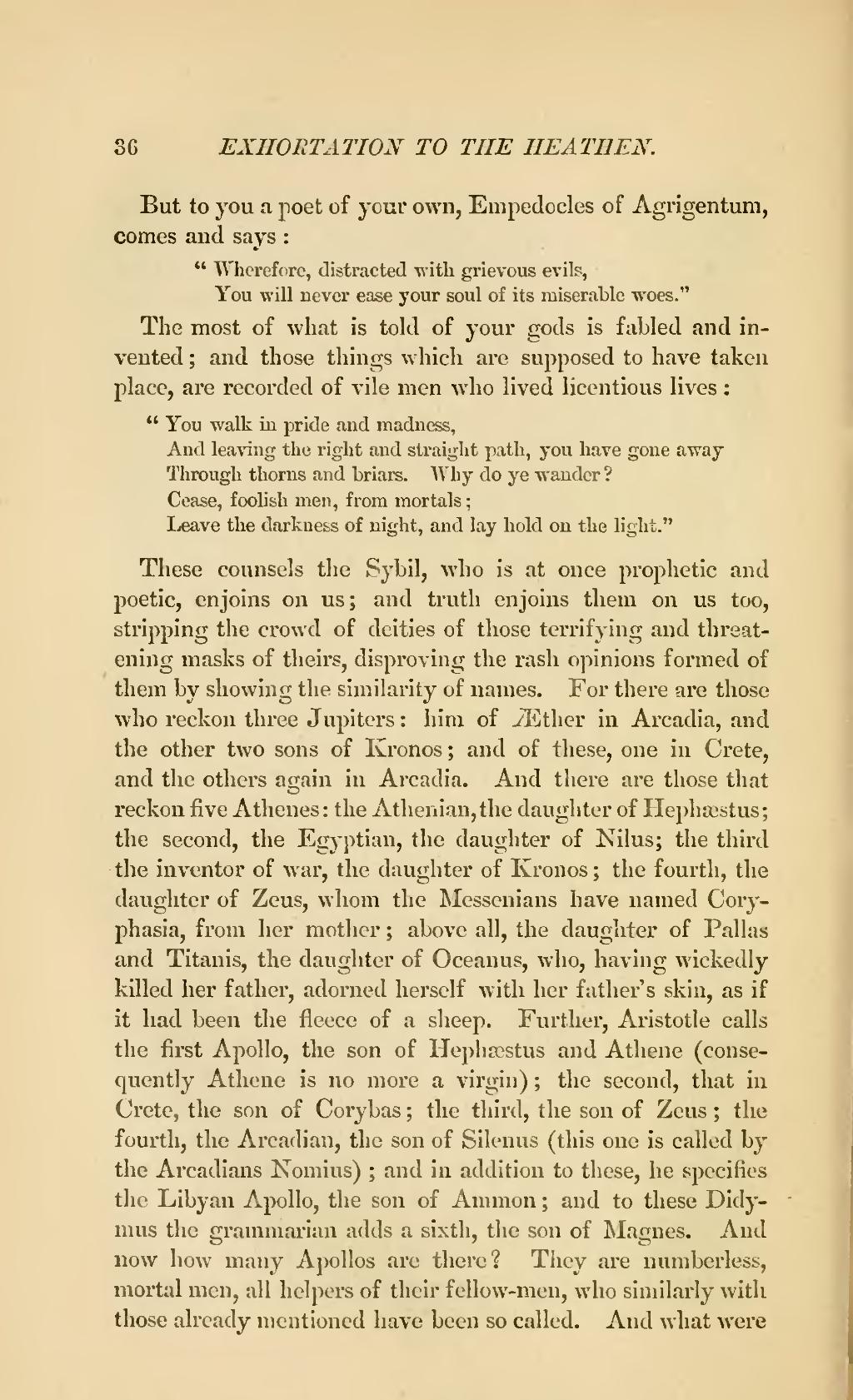But to you a poet of your own, Empedocles of Agrigentum, comes and says:
"Wherefore, distracted with grievous evils,
You will never ease your soul of its miserable woes."
The most of what is told of your gods is fabled and invented; and those things which are supposed to have taken place, are recorded of vile men who lived licentious lives:
"You walk in pride and madness,
And leaving the right and straight path, you have gone away
Through thorns and briars. Why do ye wander?
Cease, foolish men, from mortals;
Leave the darkness of night, and lay hold on the light."
These counsels the Sybil, who is at once prophetic and poetic, enjoins on us; and truth enjoins them on us too, stripping the crowd of deities of those terrifying and threatening masks of theirs, disproving the rash opinions formed of them by showing the similarity of names. For there are those who reckon three Jupiters: him of Æther in Arcadia, and the other two sons of Kronos; and of these, one in Crete, and the others again in Arcadia. And there are those that reckon five Athenes: the Athenian, the daughter of Hephaestus; the second, the Egyptian, the daughter of Nilus; the third the inventor of war, the daughter of Kronos; the fourth, the daughter of Zeus, whom the Messenians have named Coryphasia, from her mother; above all, the daughter of Pallas and Titanis, the daughter of Oceanus, who, having wickedly killed her father, adorned herself with her father's skin, as if it had been the fleece of a sheep. Further, Aristotle calls the first Apollo, the son of Hephæstus and Athene (consequently Athene is no more a virgin); the second, that in Crete, the son of Corybas; the third, the son of Zeus; the fourth, the Arcadian, the son of Silenus (this one is called by the Arcadians Nomius); and in addition to these, he specifies the Libyan Apollo, the son of Amnion; and to these Didymus the grammarian adds a sixth, the son of Magnes. And now how many Apollos are there? They are numberless, mortal men, all helpers of their fellow-men, who similarly with those already mentioned have been so called. And what were
